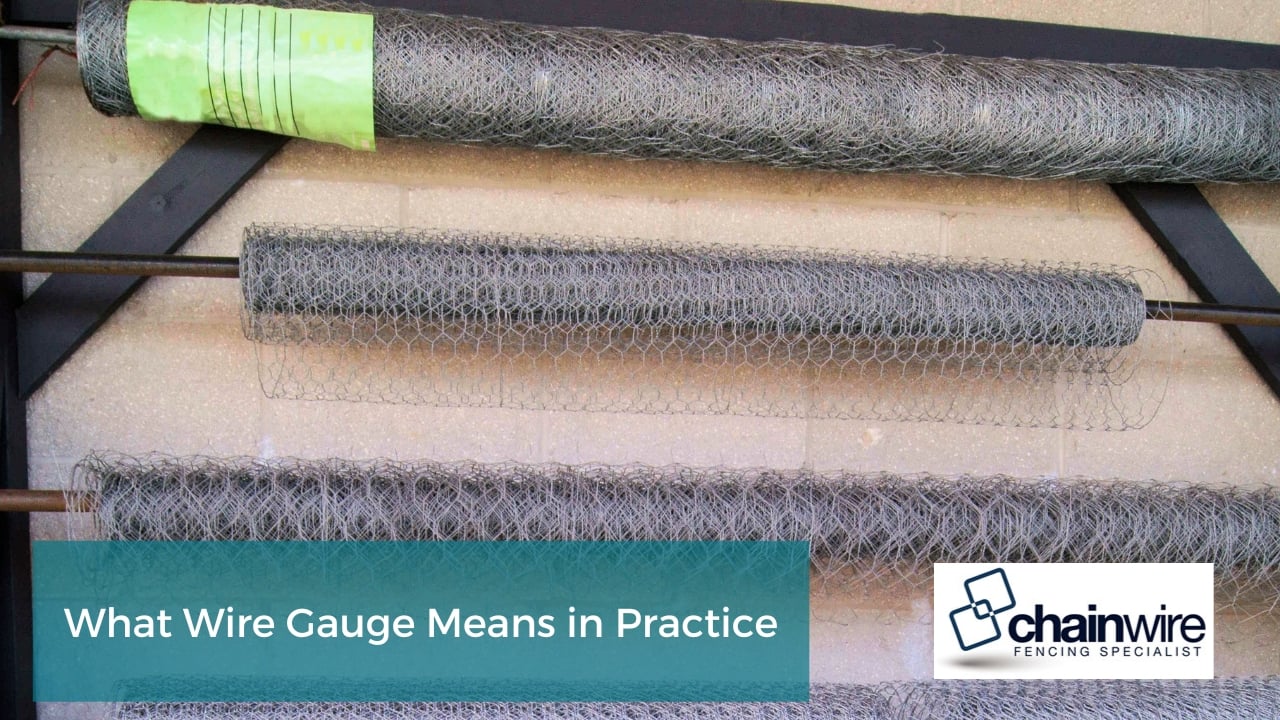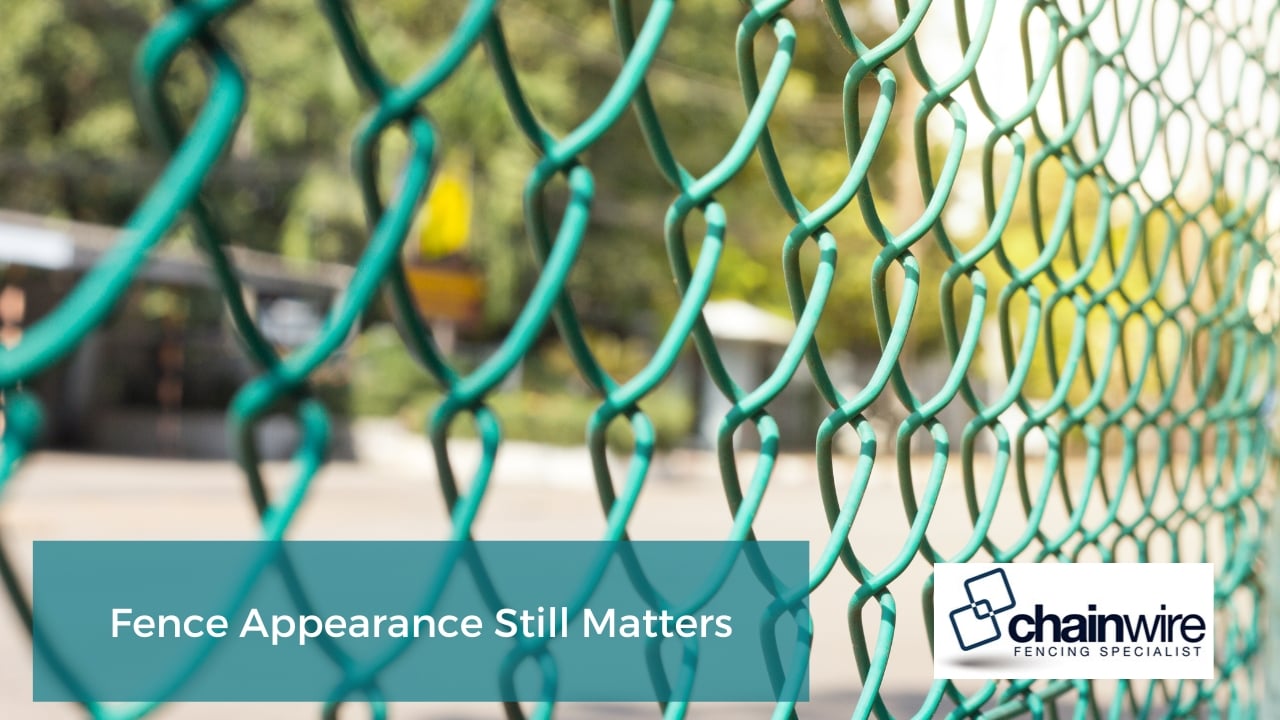Fences fail when the wire gauge and mesh size don’t match the demands of the site. Thin wire loses tension and bends under pressure. Wide mesh allows entry or escape. These issues weaken the fence’s purpose, whether it’s for safety, boundary control, or asset protection. A poor match between gauge and mesh reduces the fence’s ability to perform, leading to problems in both public and private use.
In schools, sports grounds, and commercial sites, poor fencing choices allow animals to get out, balls to pass through, or intruders to climb in. Sagging mesh and broken wire are common in fences that weren’t built for the actual site conditions.
Repairs are more frequent, maintenance costs rise, and the risk of injury or damage increases. We’ve seen fences collapse in strong wind, rust early from weak coating, or fail safety inspections due to incorrect spacing. These problems are avoidable with the right setup from the start.
This guide breaks down how to select the right wire gauge and mesh size based on use, exposure, and expected load. Every section explains what to consider and why it matters—so your fence works, lasts, and meets the needs of your site without risk or waste.
What Wire Gauge Means in Practice
Wire gauge is a number that reflects the thickness of the fencing wire. A lower number means a thicker wire. For example:
- 8-gauge wire is thicker than 10-gauge
- 10-gauge is thicker than 12-gauge
- 14-gauge is thinner and more flexible
Thicker wires are harder to cut or bend. They handle stress better, especially in public or high-traffic areas. We often use heavier gauge wires for sports fields, public facilities, and animal enclosures because they resist movement, climbing, and general wear.
In low-risk or short-term setups, thinner wires are enough. They’re lighter, easier to install, and cost less. This works for temporary fencing, visual barriers, or private yards where security is not a major concern.

How Mesh Size Controls Function
Mesh size is the space between wires. It’s usually measured in millimetres. Smaller gaps mean tighter mesh. Larger gaps mean more open spacing.
Your choice of mesh size depends on what you want the fence to do:
- Small mesh keeps pets or small animals in
- Tight mesh helps stop objects passing through
- Large mesh gives better visibility but less containment
In schools, sports courts, or animal zones, small mesh is ideal. It reduces risk by limiting movement or climbing. In places where airflow or visibility is more important—such as construction sites or park boundaries—larger mesh sizes work well.
Security and Strength Work Together
In high-security areas, both gauge and mesh need to be considered together. Thick wire on its own can still be ineffective if the mesh is too wide and easy to climb. Small mesh alone won’t help if the wire is too thin and easy to cut.
For secure fencing, we recommend this combination:
- 8 or 10-gauge wire
- Mesh spacing no wider than 50mm
- Posts anchored deep and braced correctly
This combo helps prevent climbing, cutting, or bending. It’s what we use in government facilities, large-scale commercial properties, and high-risk zones. Lower-risk areas like private yards can use 12-gauge wire and mesh up to 75mm for basic safety.

Weather and Environment Affect Durability
Wire fences are exposed to wind, rain, sun, and soil contact. Choosing the wrong wire gauge or mesh size can shorten the life of the fence.
Thick wire lasts longer and resists bending or rust better—especially if coated in galvanised or PVC material. Tighter mesh can clog with leaves or debris, so it’s better suited for enclosed or urban areas. In open or rural sites, wider mesh allows airflow and sheds dirt easier.
We always factor in local conditions before recommending a setup. Sites near the coast, for example, need corrosion-resistant wire. Inland or hilly sites may need extra tensioning to avoid sag under pressure.
Fence Appearance Still Matters
Function comes first, but how the fence looks matters—especially in public areas or commercial spaces.
Smaller mesh and thicker wire make the fence look more closed and strong. This works well in industrial or security-focused sites. On the other hand, wider mesh with thinner wire gives a lighter and more open feel, often preferred around parks, pools, or property borders.
Some clients choose colour-coated mesh to match nearby buildings or blend into landscaping. Others want maximum visibility, so they use black-coated wire with large mesh for a subtle, clean look.

Pricing Based on Materials and Longevity
Cost is directly affected by the amount of material used. Thicker wire means more steel. Smaller mesh means more weaving. Together, that raises the cost.
If you’re building a fence that needs to last more than five years or faces high use, we recommend investing in a thicker gauge. It reduces the risk of early repair or full replacement.
For short-term use or less demanding sites, lighter wire and open mesh can help save cost without affecting performance. We provide a full estimate breakdown based on site, use case, and longevity so you’re not overpaying or under-building.
Site Use Changes the Spec
Fence specifications depend on the site and purpose. Here are common gauge and mesh combinations we use based on function:
- Tennis courts use 10-gauge wire with 45mm mesh
- School boundaries use 8-gauge wire with 40mm mesh
- Dog enclosures often use 12-gauge wire with 50mm mesh
- Construction sites can use 14-gauge wire with 100mm mesh
- Playgrounds use thick wire and tight mesh to stop climbing
We assess the space, usage type, and long-term demand before giving advice. This avoids building a fence that looks right but doesn’t perform.
Talk to a Fencing Professional
Wire gauge and mesh size may seem like minor technical specs, but they directly affect the job your fence can do.
We’ve replaced many fences that failed because of poor spec choices. These failures lead to safety risks, public complaints, and added cost. Getting a second opinion before starting can help you avoid those problems.
Our team at Chainwire Fencing Newcastle helps with planning, measuring, and recommending materials based on what your site needs—not just what’s in stock. We also review terrain, soil type, and access points to avoid later changes or hidden issues.
For more on complete fencing options, see our fencing services available.
Installation Affects Fence Strength
Even with the best materials, a poorly installed fence will fail.
We’ve seen issues like:
- Posts not set deep enough
- Loose tie wires at key points
- Gates sagging or not aligned
- Incorrect tension causing early mesh droop
Our installers follow a full layout plan per site. That includes post depth, support bracing, ground clearance, and gate spacing. We also confirm wind exposure and pedestrian flow to keep the fence safe and stable.

Maintenance to Extend Lifespan
Every fence needs a basic maintenance routine. Without it, even the strongest fence starts to fail early.
We advise clients to check for:
- Signs of rust or coating wear
- Wire sag in mesh spans
- Loose connections or broken fixings
- Buildup of plant growth or debris at the base
We also recommend hosing down the base after strong weather events to stop soil buildup or rust from forming. For commercial and council sites, we offer annual maintenance schedules to handle inspections and minor fixes.
Final Advice from Chainwire Fencing
Wire gauge and mesh size affect how long your fence lasts, how well it works, and what it protects. The wrong setup leads to early damage, safety risks, and higher replacement costs.
We work with councils, schools, contractors, and private clients to match fence design to purpose. Every project starts with site inspection and spec planning—not guesswork. If you’re planning a fence, speak with our team. We’ll assess your site and recommend a wire and mesh combination that works long term.
Contact Chainwire Fencing Specialist today to get started.

